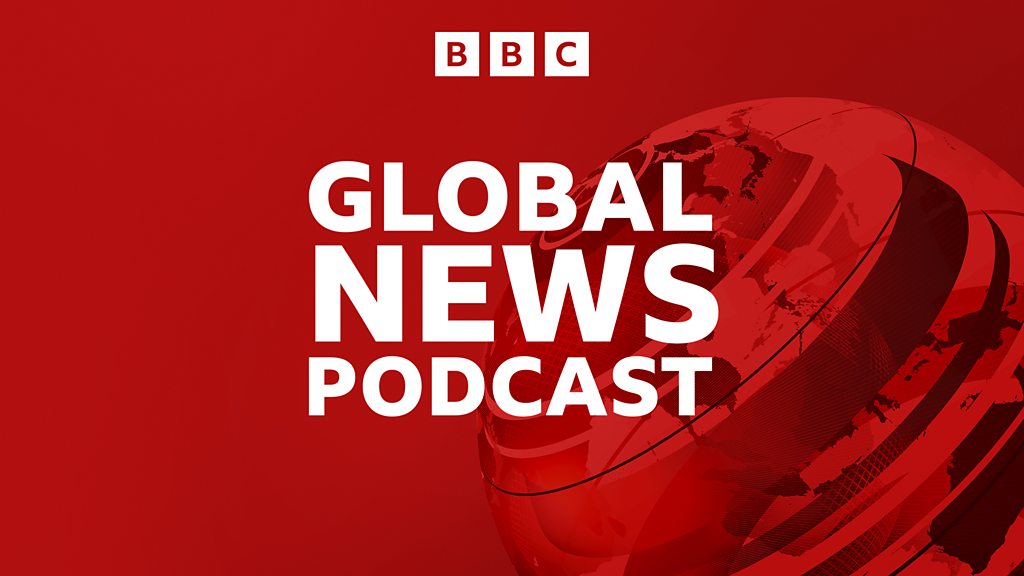His death at 88 follows a lengthy illnessRead more now playing Pope Francis Dies - Global News Podcast Special Episode His death at 88 follows a lengthy illness Catholics around the world mourn death of Pope Francis Vatican says Pope died from a stroke and heart failure Plans outlined for Pope’s funeral The Vatican has confirmed details of Pope Francis’s funeral on Saturday IMF downgrades global growth predictions after Trump tariffs The US is warned its chances of recession have significantly increased
Pope Francis Dies - Global News Podcast Special Episode
TruthLens AI Suggested Headline:
"Pope Francis Passes Away at 88 Following Illness"
TruthLens AI Summary
Pope Francis has passed away at the age of 88, following a prolonged illness that had raised concerns about his health in recent years. The Vatican has officially stated that the Pope died as a result of a stroke and heart failure. His death has elicited a profound sense of mourning among Catholics worldwide, reflecting the deep impact he had on the global Catholic community and beyond. Known for his progressive views and efforts to address various social issues, Pope Francis's leadership will be remembered for its emphasis on compassion, dialogue, and inclusivity. His tenure as the head of the Catholic Church was marked by significant moments, including his outreach to marginalized groups and his calls for environmental stewardship and peace in conflict-ridden areas.
In light of his passing, the Vatican has announced plans for Pope Francis's funeral, which is scheduled to take place on Saturday. The details surrounding the funeral arrangements are being closely followed by the media and the public, as many seek to pay their respects to the late pontiff. His death comes at a time of significant global challenges, including economic uncertainties, as indicated by the recent downgrade of global growth predictions by the International Monetary Fund (IMF) amidst escalating geopolitical tensions. The implications of his passing will likely resonate not only within the Church but also in broader societal contexts, as leaders and followers alike reflect on his legacy and the future direction of the Catholic Church in a rapidly changing world.
TruthLens AI Analysis
The news about Pope Francis's death carries significant implications for various facets of society, from religion to politics and economics. By reporting on his passing at the age of 88 after a prolonged illness, the article evokes a sense of mourning among Catholics globally, emphasizing the emotional impact of the event.
Intent Behind the Publication
The primary objective of this news piece is to inform the public about the death of a prominent global figure, Pope Francis, while also outlining the immediate repercussions such as funeral plans. There is an underlying goal of fostering a collective mourning and reflection within the Catholic community and beyond. Given the Pope's influential role, his death may also serve as a catalyst for discussions on succession and the future direction of the Catholic Church.
Public Perception and Sentiment
The article is designed to generate a somber mood, reinforcing the significance of the Pope's contributions to the Catholic faith and global issues. By detailing the circumstances of his death, it aims to create a narrative of loss and reverence. This can elevate the Pope's legacy, potentially leading to a more profound appreciation for his work during his lifetime.
Potential Omissions or Hidden Agendas
While the focus is rightly on the Pope's death, the mention of the IMF downgrading global growth predictions and warnings of an impending recession may suggest an attempt to divert attention from economic concerns. This juxtaposition could imply a strategic choice to keep the public engaged with a more emotionally charged story while significant economic issues loom in the background.
Comparative Analysis with Other News
When placed alongside other news articles, this report may reveal a pattern of sensationalism surrounding major deaths or events. It can be analyzed in conjunction with political news to explore how leadership transitions can impact global stability. The article's framing may also resonate with ongoing discussions regarding the influence of religious leaders in political spheres.
Impact on Society, Economy, and Politics
The death of Pope Francis could lead to a period of instability within the Catholic Church, especially concerning succession processes. This transition may influence global political dynamics, especially in predominantly Catholic countries. Economically, the news could affect market sentiments, particularly in sectors closely tied to religious institutions or charitable organizations.
Target Audience
The report likely targets a wide audience, particularly Catholics and individuals interested in global affairs. It resonates with those who see the Pope as a moral authority and emphasizes the interconnectedness of religion and everyday life.
Market Implications
In terms of financial markets, this news could impact stocks related to religious organizations or companies that rely on the Catholic demographic. The uncertainty surrounding church leadership may cause fluctuations in related sectors.
Global Power Dynamics
The article touches upon broader themes of leadership and power within the context of the Catholic Church, contributing to ongoing discussions about authority in spiritual and political landscapes. The timing of this news may amplify discussions about leadership during a period of global tension.
Use of AI in Writing
It is possible that AI tools assisted in crafting the article, particularly in structuring the information for clarity and engagement. However, the emotive language and the framing of the Pope's death suggest a human touch likely aimed at resonating with the audience's sentiments.
Manipulation Potential
The piece may possess elements of manipulation, particularly if it attempts to overshadow pressing economic issues with a focus on the Pope's death. The emotional language used can draw attention away from critical discussions, leading to a potentially skewed narrative.
Considering all these factors, the article presents a reliable account of Pope Francis's death, but its framing and context may serve multiple purposes beyond mere reporting.
